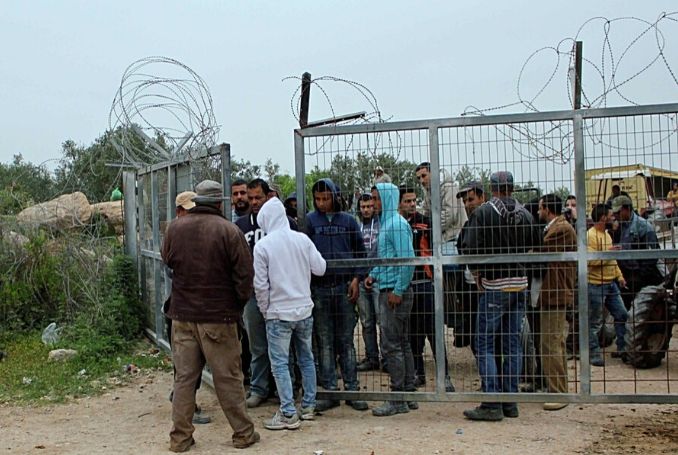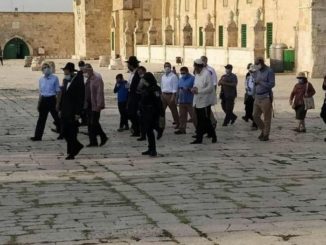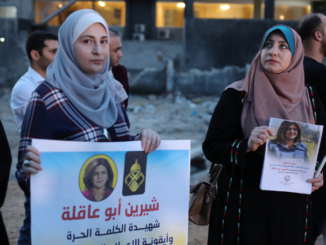
Israel has “tightened its restrictions” for Palestinian farmers trying to access their land located on the other side of the illegal Separation Wall, reported Haaretz.
Most of the Wall’s route lies inside the occupied Palestinian territory – the basis for the International Court of Justice’s 2004 advisory opinion on its illegality – and a large amount of Palestinian agricultural land is now located on the “wrong” side of the Wall.
Until now, Palestinian landowners have been able to apply to Israeli occupation authorities for agricultural entry permits for the general purpose of “maintaining their connection to the land”.
Israeli West Bank wall traps Palestinian farmers' land on the Israeli sidehttps://t.co/Sh0HxHmJc9
— RT (@RT_com) November 24, 2019
Now, however, Haaretz reported, newly-issued Israeli regulations have narrowed the purpose of these permits, “and they will also only be good for a certain number of entries”.
According to the article, the new purpose is defined as “enabling agricultural land to be worked based on agricultural needs derived from the size of the plot and the type of product, while maintaining the connection to these lands”.
A new layer added to Israel's apartheid bureaucracy.
Palestinian farmers are now getting even less access to their own land, the other side of the Wall.
One factor is type of crops being grown. 40 entries per year for olives & onions. 50 times for figs.https://t.co/Nn9dwdLPOz
— Ben White (@benabyad) November 25, 2019
The number of times a Palestinian farmer can access their land will also be capped, based on the type of crops grown there and the size of the land in question.
For example, “the maximum number of entries is 40 times a year for olives and onions, 50 times for figs and 220 for tomatoes or strawberries”.
Once a farmer exhausts the entry quota, they must apply for a new permit from the occupation authorities, which will only be granted if a proof is provided that it was not possible to complete the necessary agricultural work in the allocated visits.
Palestinians already face a number of obstacles to reach their land on the other side of the Wall. Access is through gates in the Wall, but these are “open only for a few hours a day”, for permit-holders.
According to human rights NGO Hamoked, there are 84 gates in the Wall, “but only nine are open on a daily basis”. Ten are open once a week and the other 65 are “open on a seasonal basis”.
#Palestinian #Farmers Denied Entry to Their Land Behind #Israeli #Apartheid Wall– IMEMC News https://t.co/aW3KhrW8Qd #FreePalestine ?? #Palestine #BoycottIsrael #BDS #Google #CNN #BBC #FoxNews #MSNBC #DonaldTrump #Apartheid #Israel #Netanyahu #JaredKushner #MikePence #WestBank
— Eddie DiFruscia (@heavyed65) October 28, 2019
Ahmed Al-Abadi, 54, of Tura Al-Gharbiya in the northern occupied West Bank, recently received one of the new, limited permits.
“They treat our land is if it were a business where we work by the hour,” he told Haaretz. “I used to sit under a tree on this land with my father and grandfather; all the memories of my childhood are there. It’s not a business, it’s not a matter of profits; it’s our connection to this land.”
Earlier this year, Haaretz also reported that “the rejection rate for Palestinians applying for agricultural entry permits jumped to 72 percent in 2018 from just 24 percent four years earlier”.
(Middle East Monitor, PC, Social Media)







